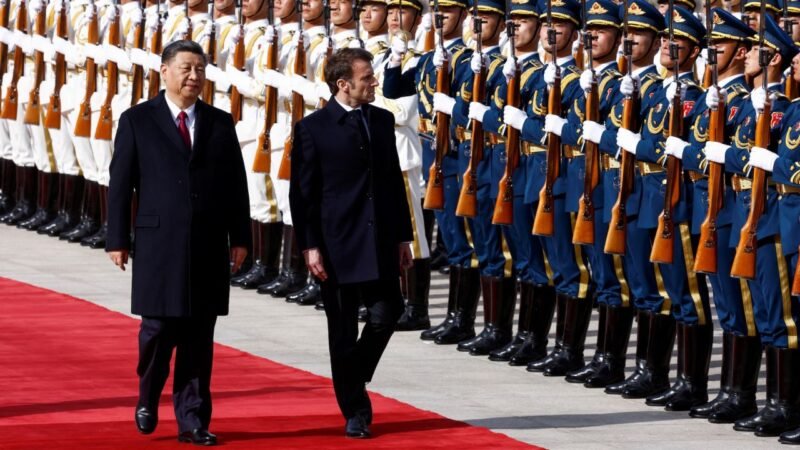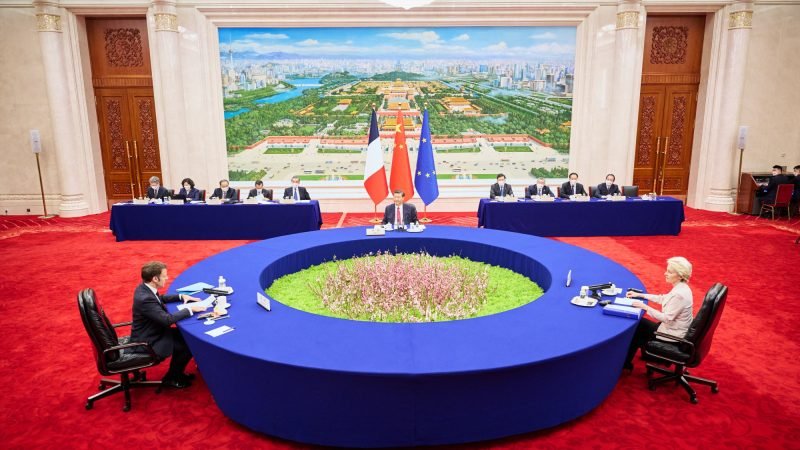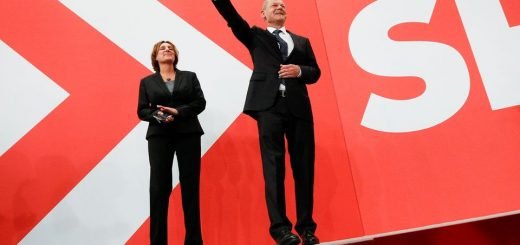China’s Divide and Conquer Strategy with European Leaders

China and France have signed a number of agreements, including in the field of civilian nuclear energy, during French President Emmanuel Macron’s state visit to China. The two countries have agreed to deepen cooperation in traditional areas such as aviation, aerospace, and civilian nuclear energy, while also cultivating new growth drivers in green development and scientific and technological innovation. This includes building a China-France carbon neutrality center and strengthening joint talent training. France has also been invited to be a guest of honor country at two upcoming Chinese trade expos. Both countries have committed to providing a fair, just, and non-discriminatory business environment for each other’s companies.
During his visit, Macron gave a speech to the French community in China, in which he expressed his desire to engage China in shared responsibility for peace and stability, strengthen trade ties, and collaborate on major international issues such as climate change and the protection of biodiversity. He also emphasized the importance of reviving cultural ties between France and China in preparation for the 2024 Olympics and Paralympics, the year of Franco-Chinese cultural tourism, and the 60th anniversary of diplomatic ties between the two countries.
Macron’s visit to China was preceded by a telephone conversation with US President Joe Biden, during which the two leaders discussed the visit. The French president was accompanied by a business delegation of over 60 executives from various French companies. It is worth noting that a few weeks prior to the visit, the French government had banned the Chinese video-sharing app TikTok on government devices due to security concerns.
Counting on China in Ukraine War
French President Emmanuel Macron urged Chinese President Xi Jinping to use his influence to end the war in Ukraine during talks in Beijing on Thursday. Macron stated that Russia had put an end to decades of peace in Europe, and finding a lasting peace that respected internationally recognized borders was an essential issue for China, France, and Europe.
Although China has claimed neutrality in the conflict, it has refused to condemn Russia’s invasion and has continued to strengthen its economic and diplomatic ties with the Kremlin. Macron stressed the need for discussions with all parties, including Russia, to ensure respect for Ukrainian sovereignty and territorial integrity.

During a trilateral meeting between Macron, Xi, and von der Leyen, China and Europe sought ways to reconnect after three years of China’s strict pandemic travel controls and deteriorating ties over a range of issues, including human rights and Ukraine. Macron and Xi also discussed calling Ukrainian President Volodymyr Zelensky at the right moment, and Xi pledged to call him during their meeting.
Macron remains optimistic about working with China to find a way to benefit the Ukrainian people and identify a solution to this war.
Divided EU vs China
French President Emmanuel Macron and European Commission President Ursula von der Leyen’s recent visit to China highlighted the challenges the EU faces in dealing with Beijing.
While Macron received a grand welcome at the airport, with China’s foreign minister greeting him personally, von der Leyen was received by an ecology minister at the regular passenger exit.
The different receptions reveal China’s divide-and-conquer strategy towards the EU, which has varied opinions on how to approach China. The Chinese government sees a better chance of making headway with Macron, leaving von der Leyen in a subordinate position. This was further exemplified when Chinese President Xi Jinping descended the Great Hall of the People’s steps to greet Macron with smiles and a handshake, while von der Leyen walked up the stairs alone later.
The visit has highlighted the need for the EU to present a united front when dealing with China.


















